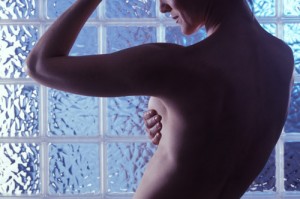

Women's breasts changes throughout life. This is due to various physiological processes that occur in the body. One of these processes is pain in the mammary glands before menstruation. The breast begins to fill up a week before menstruation and ends two days before it. Along with this, there are cases when the pain suddenly disappears. And then the question arises: why does the chest not hurt before menstruation?
There are various reasons why the chest does not hurt before menstruation. One of them is preparing the body for motherhood. In this case, the breast tissue grows and, if fertilization does not occur, dies. This is a very normal monthly occurrence. Another thing is when the chest stops hurting before menstruation. Then it’s worth considering why the chest stopped hurting before menstruation?
If the pain has intensified immediately or over the last few menstrual cycles, then it is worth being examined, as this could happen due to a hormonal imbalance. Another cause of pain may be a strong emotional shock or recent infectious diseases. Also, cyclic mastodynia (this is how pains in the mammary glands are scientifically called) can be one of the symptoms of a fibrocystic disease - mastopathy.
If the pain begins in the second half of the cycle, then you should not worry. This is not a sign of cancer.
However, if a woman finds lumps in her chest, then you need to see a doctor as soon as possible!

It is also worth wondering if the chest always hurts before menstruation.
It turns out that not always:
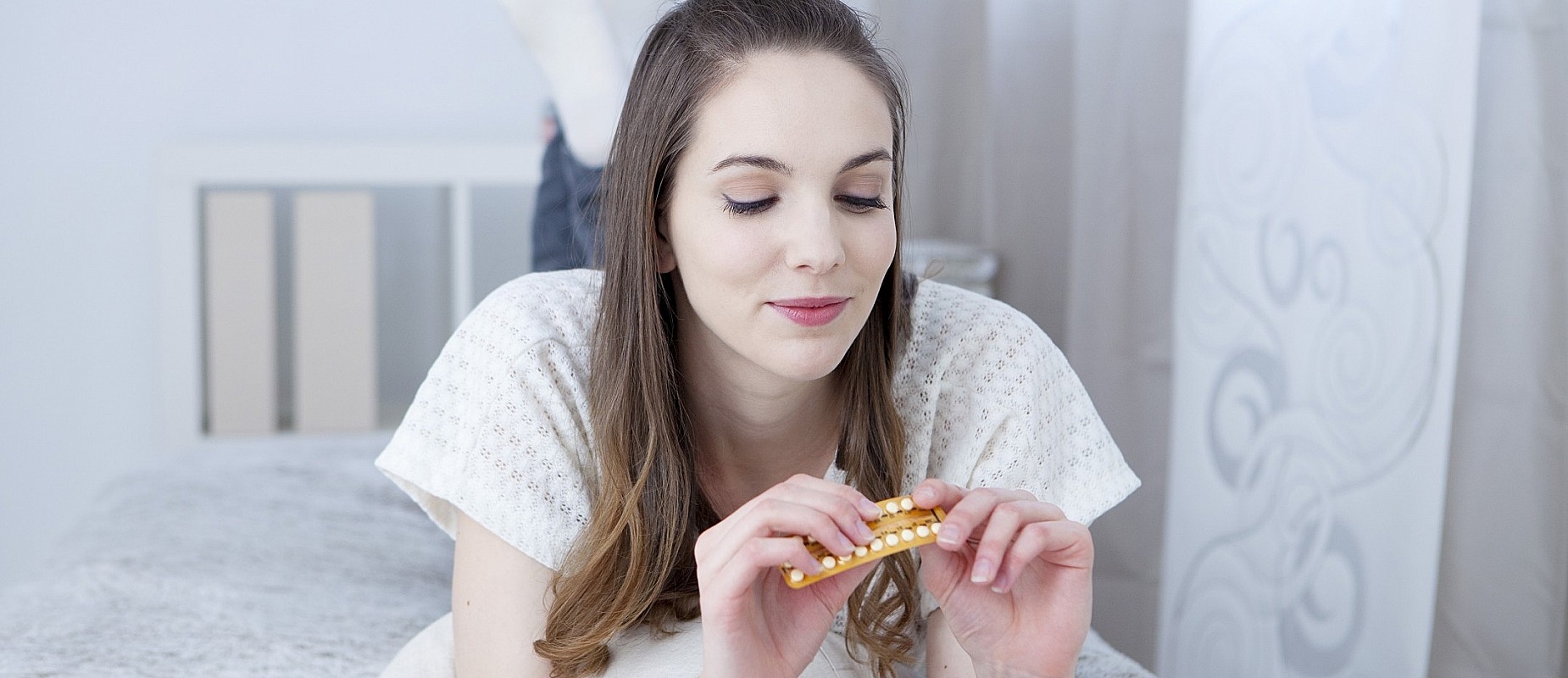
Chest pain may suddenly disappear. On the one hand, this is good. But on the other hand, it can be caused by various negative factors. Let's consider some of them.
At a fairly early date, the fetus may stop its development.
At the beginning of pregnancy, the level of the female hormone progesterone rises, which causes pain. But later, this level drops, and rejection of the uterine lining may not happen, because the fetus does not develop and remains inside the uterus. In this state, sensations appear, as if at first there were painful sensations, and then abruptly disappeared.
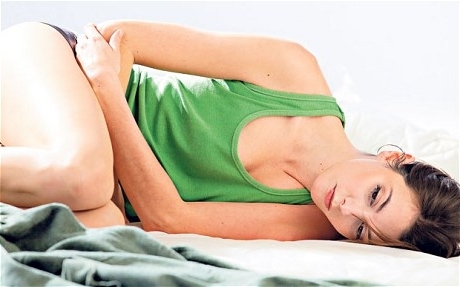
If the fetus grows outside the uterine cavity, then the chances of fetal development and the birth of a child are zero.
Even in the early stages, a woman experiences changes in her state of health, especially abdominal pain. But a minority of women complain about discomfort in the chest. But the majority notes that in this condition, before menstruation, the mammary glands stopped hurting.
The body must maintain a balance of estrogen and progesterone.
But if a tumor is formed that produces the first hormones, then the effect on the body of the second is sharply reduced. The breast stops responding to hormonal changes during menstruation, and sensations change throughout the cycle.
The consequence of this is a complete violation of the menstrual cycle and changes in the balance of hormones.
If the chest has stopped hurting, and there are no periods, then you need to be examined by a doctor.
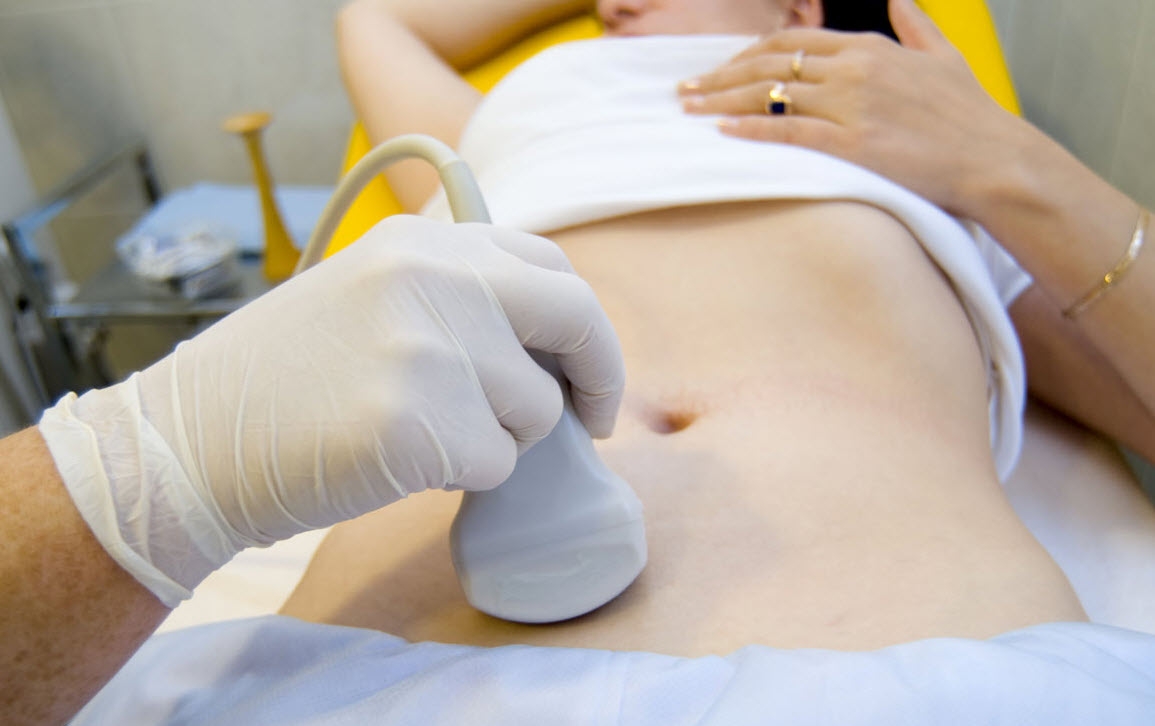
The main cause for concern can be called failures in the passage of the cycle, which last for several months.
Increased pain may indicate a disease of the mammary glands or hormonal disorders.
You also need to think about if new symptoms of PMS have appeared, or the old ones have intensified, if the stomach has stopped hurting before menstruation, if the weight has dropped sharply or the pregnancy test shows a positive result, but there are no changes in the mammary glands.
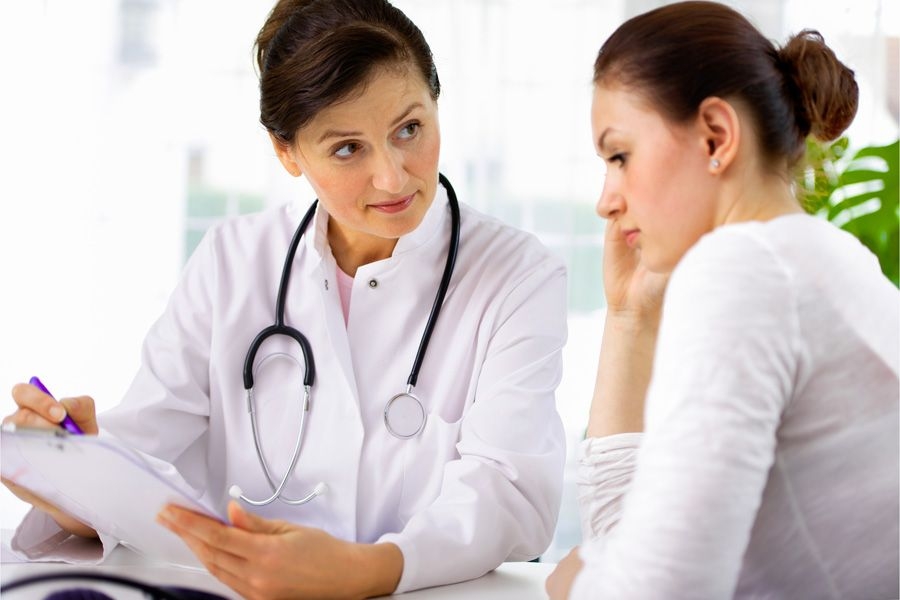
If the breast is enlarged, but does not hurt, this may be a consequence of a decrease in progesterone levels. For a woman, the cessation of pain can be good news, but if she wants to have a child in the future, then it is better to consult a doctor.
Watch our video to find out why the chest hurts before menstruation, and what the absence of pain indicates.
Some women 6-7 days before the onset of menstrual bleeding feel its approach. The nipples begin to hurt, and the chest swells. The situation when the chest suddenly stopped hurting before menstruation is evidence of a change in the hormonal background in the body. The reason for this is the correct daily routine, a balanced diet, an active sex life, and pregnancy.
The menstrual cycle is characterized by fluctuations in the level of sex hormones. The mammary glands of a woman are designed to feed a child, their tissue is abundantly dotted with nerve endings that respond to any change in hormone levels.
The reasons why there is pain in the nipple area are as follows:
The reasons why the chest may stop hurting on the eve of menstruation:
If previous periods were accompanied by discomfort in the mammary glands, and then they disappeared, it is necessary to undergo an examination to find out the exact cause of these changes. Only after that you can not worry about your health.
During the period when an active sexual life begins without long intervals, the level of sex hormones in the body of girls and women normalizes. This contributes to the disappearance of the manifestations of PMS and associated pain in the chest area. Such changes have a positive effect on the female body.
Taking hormonal drugs for the treatment of diseases not related to sexual function can lead to the disappearance of soreness in the second half of the cycle, since discomfort at this time is associated precisely with hormonal instability.
Acceptance of properly selected contraceptives normalizes the ratio of sex hormones and contributes to the disappearance of the symptoms of premenstrual syndrome. As a rule, this happens after 2-3 months from the start of admission.
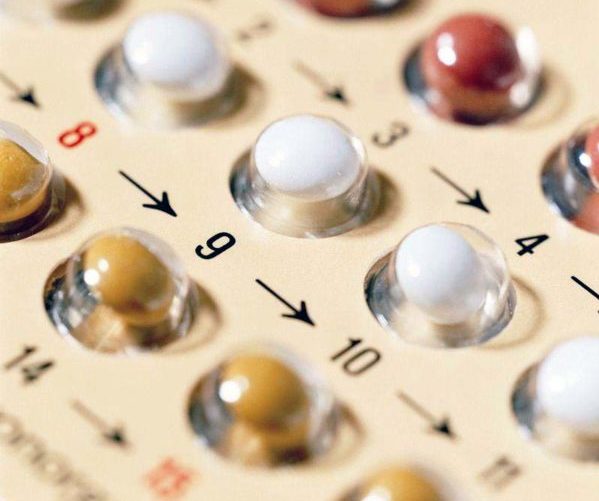
The female body is unpredictable. Most often, a woman begins to suspect about the onset of pregnancy by a change in her condition: she has no menstruation, her breasts begin to swell and hurt. However, in some cases, pregnancy is manifested by the disappearance of soreness. mammary glands.
Normalizing the regime of work and rest, quitting smoking and drinking alcohol can reduce the manifestations of PMS and relieve discomfort in the chest area. The right way of life includes the following aspects:
When choosing underwear, you need to consider its quality: soft fabric, hypoallergenic dyes. The paint during washing should not stain the water. Otherwise, it remains on the skin, where irritation can begin.
If the right adjustments are made to the lifestyle, the sex glands of a woman begin to work without failure. This leads to the normalization of the hormonal balance in the body.
The situation when menstruation has dramatically changed its character, and the accompanying soreness of the chest has disappeared, may indicate problems that have arisen in the body.
If the patient's chest hurt and stopped hurting with the onset of pregnancy, this can cause a miscarriage. The fact is that from the moment of fertilization of the egg, increased production of progesterone should begin.
Progesterone is responsible for relaxing the muscles of the uterus, which is necessary for the full implementation of the egg from its wall and the further development of the embryo.
Under the influence of this hormone, the volume of the glandular tissue of the mammary glands begins to increase. Its deficiency leads to an increase in uterine tone and an increased risk of miscarriage. Timely consultation with a specialist will help save the life of an unborn child.
The reasons for the development of this pathology can be an early menopause, frequent abortions, constant stress, and disturbances in the functioning of the ovaries. The hereditary factor also plays an important role.
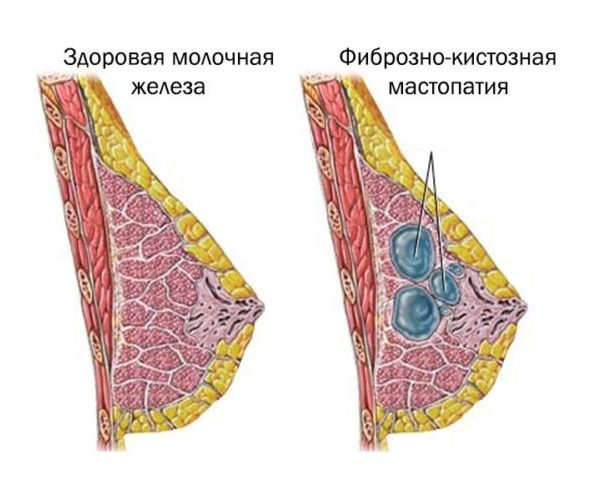
With fibrocystic mastopathy, the connective tissue in the mammary gland begins to grow. The main manifestations of the disease are associated with this:
Pain can be intense and give under the shoulder blade or in the arm. Sometimes the pain is aching, stops when menstruation comes.
In this case, the disappearance of pain may indicate the right treatment. However, such a conclusion can only be made by a specialist after a complete examination of the woman.
Every time there is a change in the course of the menstrual cycle, a woman must wonder why this is happening. To reduce pain in the chest area, the patient must follow several rules:
To correct the hormonal state, traditional medicine recommends enriching the diet with fresh leaves or celery juice, flaxseed. If the chest has not stopped hurting after following all the recommendations, visits to the gynecologist should become regular, and taking care of your health should come to the fore.
Recommend related articles
What should I do if my breasts stop hurting before menstruation? Seems like a funny question! Well, of course, be glad that you do not experience discomfort. However, the chest always hurt before the onset of menstruation, and in the next cycle it stopped - this causes alarming fears, is everything normal?
Every month, a woman's body prepares for fertilization. Every month, hormonal changes occur in the body, and this cannot but affect the well-being of women. Only in some women, all the symptoms of hormonal changes are pronounced and noticeable. Other women (most often those who can boast of good health) do not even notice any discomfort from this whole process. Of course, the most significant changes occur in the female reproductive system, it is there that the culprit of everything ripens - the egg, it is for her that all hormones work.
And in connection with hormonal restructuring, a woman's breasts also undergo changes. She is also preparing for a possible pregnancy and future lactation. Blood rushes to the chest, it becomes heavier, denser, slightly increases in volume, becomes more sensitive. Breast enlargement is due to the fact that the glandular tissue grows. If fertilization does not occur in the current menstrual cycle, then this glandular tissue atrophies and dies. And so from month to month, from cycle to cycle. Women get used to some discomfort, to painful sensations that occur in the chest in the second half of the cycle, before menstruation. Although some women may have very severe pain that it even hurts them to dress. Pain in the chest before menstruation is called mastodynia. And if she does not bring much concern to a woman, then this is considered a normal physiological process, not a pathology.
Why do many women care that the chest has stopped hurting before menstruation? As mentioned above, chest pain  are directly related to the hormonal background of a woman. And if the usual monthly pains have disappeared, a woman can conclude that she has undergone some changes in the hormonal background. And of course, she begins to worry: is this normal, are there any pathologies, is this not a sign of pregnancy?
are directly related to the hormonal background of a woman. And if the usual monthly pains have disappeared, a woman can conclude that she has undergone some changes in the hormonal background. And of course, she begins to worry: is this normal, are there any pathologies, is this not a sign of pregnancy?
Breasts usually respond to progesterone levels. The hormone progesterone is produced by the corpus luteum of the ovary after ovulation. Its level in a woman's body reaches high amounts in the second half of the menstrual cycle, before menstruation. And when the body "understands" that fertilization has not occurred, then the level of progesterone drops sharply and decreases to a minimum, which causes the next menstruation. Also, the breast reacts to the intake of synthetic hormones for the purpose of contraception. If you stop taking them, and the chest before menstruation, as usual, does not hurt, then we can assume that ovulation has not occurred. If this repeats for several cycles, then you should consult a doctor and undergo a hormonal examination.
If the chest does not hurt before menstruation, this is not a sign of pregnancy. On the contrary, at the beginning of pregnancy, the body produces a lot of progesterone, and the breast begins to actively prepare for lactation, which together can lead to pain and discomfort.
The occurrence of pain in the chest or their absence before menstruation is a fairly common occurrence that causes anxiety in women. Especially the feeling of anxiety is aggravated when the chest completely stops hurting or gets sick for the first time. How reasonable this is depends on some factors, which a competent specialist will help to identify.
However, the abrupt disappearance chest pain after their prolonged presence before menstruation, may indicate the following factors / problems:
Poor nutrition;
- powerful stress;
- acclimatization;
- the consequences of a serious illness.
A repetition of the situation when menstruation is delayed for more than 10 days can lead to the formation of reproductive problems.
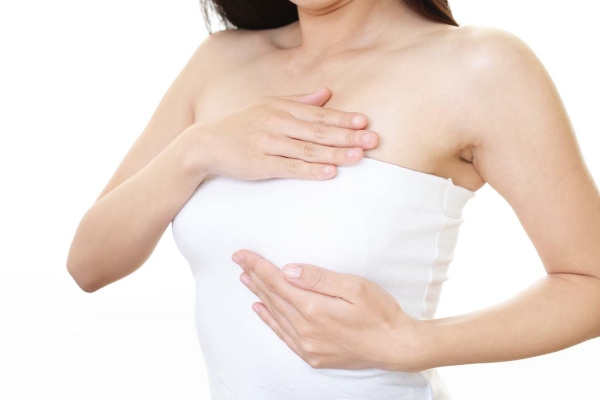
Identification of one of the signs is a reason to make an appointment with the doctor.
A healthy woman has a 28-30 day menstrual cycle. After 11-15 days, the level of estrogens (prolactin and progesterone) begins to increase - ovulation occurs. 10-12 days before the onset of menstruation, pain in the chest is formed due to an increase in the sensitivity of the mammary glands several times.
Many women experience minor discomfort before the onset of menstruation, and some are forced to cope with severe pain. With the advent of menstruation, the female body receives a command about the absence of pregnancy. Atrophy and resorption of proliferation occur, the pain syndrome subsides.
The chest stopped hurting because the amount of progesterone in the body decreases (stress, eating junk food) or due to the use of birth control pills.
Sensations in the body are caused by the restructuring of the hormonal background, which can occur for several reasons:
Women are sensitive to fluctuations in progesterone, a hormone produced by the ovary after ovulation. A decrease in the hormone leads to a decrease in sensitivity. She is very susceptible to taking contraceptives, if you stop taking it, then ovulation will not occur, and there will be no pain.
The disappearance of the usual symptoms of ovulation may be due to:
Soreness in the mammary glands before menstruation is a normal condition of the female body. Normally, the breast begins to ache a few days before ovulation.. At this moment, the number of endothelial tissues increases, because of this, there is a feeling of compaction in the mammary glands. There is blood filling of the vessels and growth of the glandular tissue, which makes it heavy and edema occurs.
With the onset of the calendar period of menstruation, all these changes pass. Part of the overgrown endothelium gradually atrophies. However, a woman should clearly know at what time this happens.
Painful sensations in the chest during menstruation can indicate the occurrence of female diseases. Probing seals in the area of the glands can be a sign of inflammation, the occurrence of a cancerous tumor, and malfunction of the ovaries. It is important not to miss this warning sign.
Non-cyclic reasons:
Breast pain is one of the main symptoms of premenstrual syndrome (PMS). During the entire cycle, which lasts from 28 days to 30, the state of the glands changes. These changes occur in accordance with the hormonal background.
The process of ovulation rebuilds the female body and prepares it for the onset of pregnancy. The hormone progesterone, which increases many times during the ovulation phase, affects the pain in the chest tissue. This hormone is involved in preparing the uterine layer for pregnancy and strengthening the embryo in it.
The steroid hormone estrogen promotes an increase in adipose tissue, increases the width of the ducts of the mammary glands, and is involved in the formation of the uterine mucosa. It also causes, in an increased concentration in the blood, swelling of the chest. Prolactin affects the increase and production of milk in the glands.
After maturation, the egg enters the uterus and waits for connection with the sperm - the onset of pregnancy. If fertilization does not occur, with the onset of the menstrual cycle, the mucous layer of the uterus, together with the egg, is rejected and leaves the body with menstrual blood. During this period, all painful symptoms pass and the cycle begins anew.
Non-steroidal and anti-inflammatory drugs are used to relieve premenstrual symptoms.
These drugs can be bought at a pharmacy without a doctor's prescription.
Danazol, tamoxifen citrate are used in the treatment of particularly severe symptoms in the premenstrual period. These drugs are prescribed under the strict supervision of a doctor, as they have a number of side effects.
Birth control medications can also relieve pain symptoms for a while. However, they do have side effects.
Taking vitamin B6 or magnesium will help not only relieve cyclic pain, but also prevent nervous stress.
During the premenstrual period, doctors advise wearing a sports bra. A comfortable bra is able to support heavy breasts during movement. Prevents their sagging and subcutaneous stretch marks.
At this time, alcohol, fatty foods should be excluded from the diet. The use of strong coffee leads to an even greater expansion of blood vessels throughout the body and increases blood flow to the mammary glands even more.
With the appearance of sudden changes in the sensations of the mammary glands before menstruation, a signal to go to the doctor. Warning symptoms of infection and neoplasms may be less noticeable pain and their increase before menstruation. It is worth visiting a doctor if you notice:
Your doctor will do a physical exam, including a breast exam, and ask you to describe in more detail the sensations that are bothering you. The doctor may ask:
The doctor can also show you how to do your own breast exam at home.
If during the examination, the doctor finds structural changes in the tissues (especially the area of the lymph nodes) or abnormal compaction, he will ask you to undergo a mammogram (or ultrasound if you are under 35 years of age). A biopsy is required (a piece of tissue, as a sample is surgically removed from the mammary glands), for a study on the occurrence of a malignant tumor.
In the premenstrual period, a comfortable bra is advised to be worn at night, this will provide additional support for the mammary glands. If pain symptoms worsen, change your regular bra to a more stretchable sports bra.
But it is worth remembering that this type of underwear from the load of the breasts can quickly deform and lose shape. Sports bras should be replaced periodically. The same rule applies to young girls from 15 years old, whose mammary glands are not fully formed and are still growing.
In the approach of menstruation, it is worth adjusting the diet, considering and choosing a vitamin kit. Exclude not only fatty, but also salty foods. It is recommended to take vitamin E (400 units), magnesia 400 mg.
The following foods should be included in the diet:
The doctor, when visiting, can prescribe a special vitamin complex additionally. Self-examination of the breast at home helps to control all changes in breast tissue. Doctors recommend doing your own examination of the breasts once a month in front of a mirror.
The passage of the cycle causes various questions and experiences in the weaker sex, especially the discomfort felt inside. Every month there are several days in which the possibility of getting pregnant increases to 100%, and this leads to an increase in sensitivity. Moreover, each female representative has different symptoms, and menstruation can pass absolutely without discomfort.